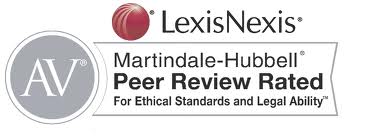Directors' Duty of Care
The duty of care requires a director to make business decisions in the best interests of the corporation in good faith, with due diligence, and with the skill and judgment of an ordinary person under the circumstances. Claims for breach of the duty of care that involve a failure to act typically allege that directors did not adequately supervise corporate executives or key employees. Most directors are not involved in the day-to-day workings of the corporation and may have no actual knowledge of improper management acts or practices. Indeed, they may have been misled by information provided by top executives or employees.
Duty to Monitor Corporate Conduct
As part of the duty of care, directors have the duty to monitor corporate conduct. The duty to monitor relates specifically to oversight of key officers and executives of the corporation. One of the board's primary duties is to prevent self-dealing and shirking of responsibilities by upper-level management. Directors must exercise ordinary care and prudence in supervising the officers and agents to whom they delegate corporate responsibility.
Business Judgment Rule
The business judgment rule generally protects a disinterested director who has acted based on adequate information and a reasonable investigation. A director's failure to see obvious warning signs, red flags, or potential problems may expose him to personal liability for losses caused by the corporate officer or employee. The business judgment rule will not protect a director who has been grossly negligent in performing his duty to monitor corporate conduct. Under the Delaware corporation statute, a director is entitled to indemnification against claims for failure to supervise employees properly if the director meets the good faith requirement. Director inaction is not always dispositive in duty to monitor cases. Any decision not to act would likely be reviewed under the business judgment rule.
Existence of Information and Reporting Systems
In satisfying the duty to monitor, the board of directors must assure that information and reporting systems exist in the organization that reasonably are designed to provide them with timely, accurate information. Thus, directors likely will avoid liability if evidence establishes that they have taken reasonable steps in good faith to assure that they are receiving adequate information relevant to their monitoring and oversight functions. A director's duty of care also requires him or her to investigate the truthfulness and veracity of the information that has been furnished by subordinates. The general standard is "reasonable" inquiry.
Delegating Oversight Responsibilities
A board of directors frequently delegates its oversight responsibilities to a committee or a third party (over which the board maintains control), which develops and implements compliance and risk management programs. These programs typically apply to all levels of corporate employees. The refusal to establish a compliance program could be viewed as grossly negligent conduct. Under Delaware corporation law and similar laws in other states, directors who engage in grossly negligent conduct are not statutorily exempt from personal liability.
Copyright 2013 LexisNexis, a division of Reed Elsevier Inc.

